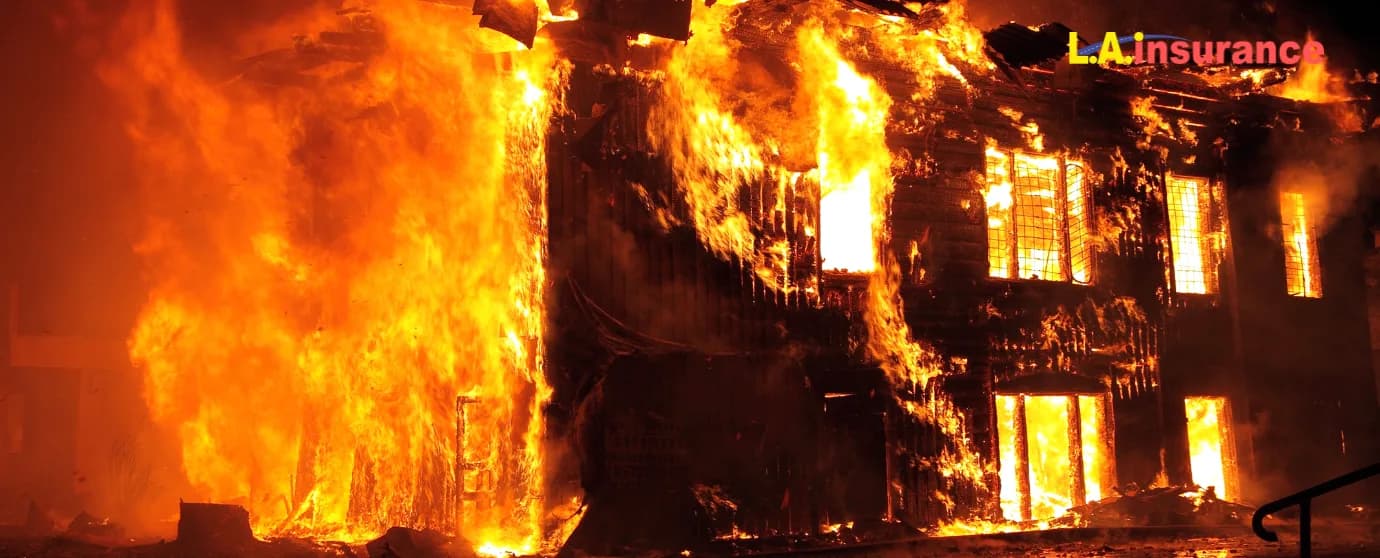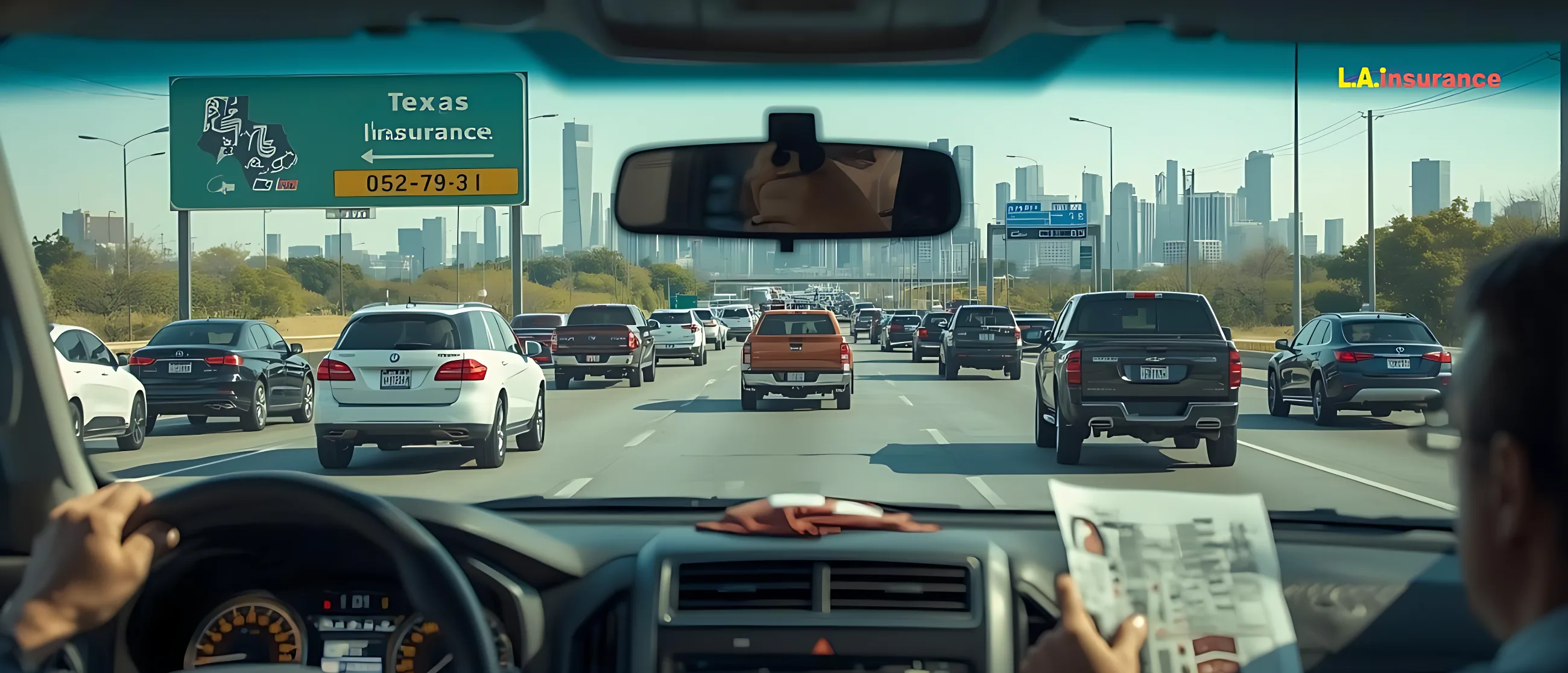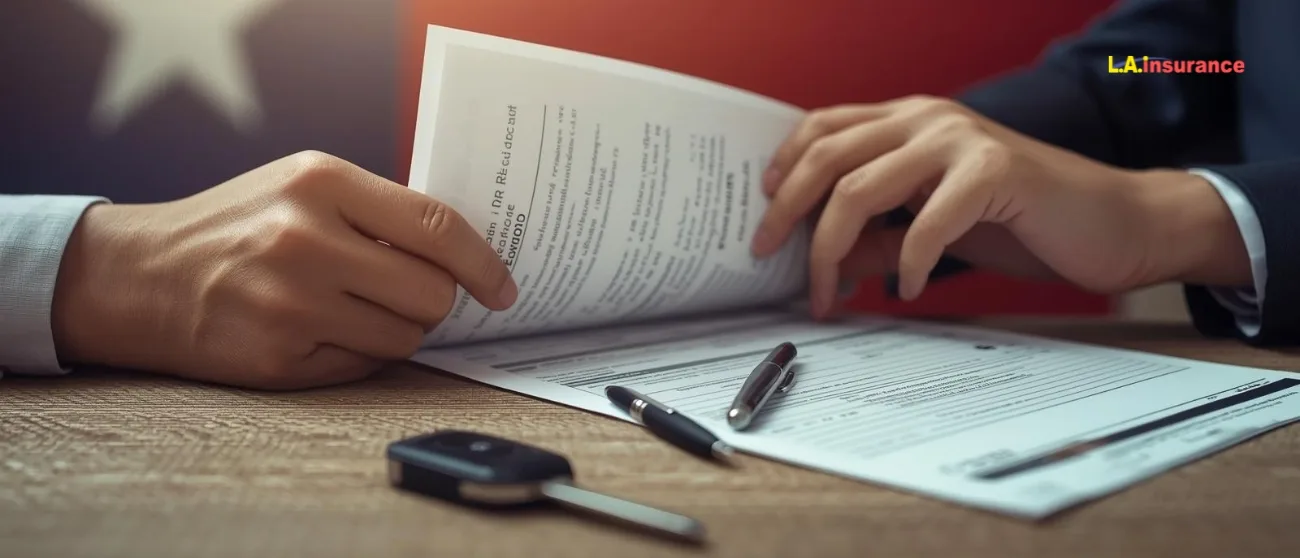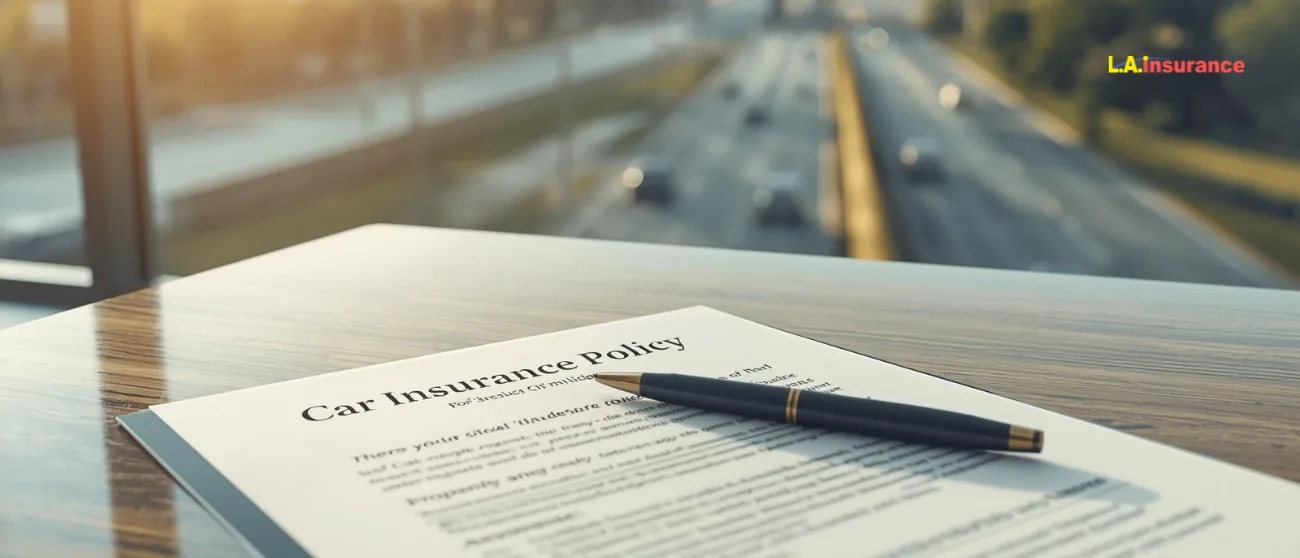
Publish Date: 13-10-2025
Renter's insurance
Last Updated: 17-12-2025
Does Renters Insurance Cover Fire Damage?
Home fires aren’t a rare occurrence in the United States. Since the start of 2025, the Red Cross has responded to almost 6,000 house fires. The most common causes of these incidents include cooking, heating, electrical malfunctions, and careless smoking.
According to the National Fire Protection Association (NFPA), during the five-year period from 2016 to 2020, an estimated average of 343,110 home fires occurred per year, resulting in 2,610 civilian deaths and $7.6 billion in property damage.
And if you’re renting a home in Texas, California, or Florida, you’re more likely to experience house fires, including wildfires, since these states report higher numbers of fire incidents.
So, a house fire can happen to anyone, and clearly, it’s not that uncommon. That’s why it’s valid to ask renters whether their insurance policy covers house fires, wildfires, or other fire-related incidents. If it does, what exactly will the insurer pay for, and how much? This article explores all of that to help tenants find the answers they need about fire-related damages. Now, let’s begin!
Feeling a Bit Impatient to Read a Long Article? Here’s a TL;DR:
- Yes, most renters insurance policies cover fire damage and smoke damage to your personal belongings.
- Building repairs are your landlord’s responsibility, and your policy won’t cover structural damage.
- Coverage often includes loss of use for temporary housing and additional living expenses if your rental is unlivable.
- Common limits apply to high-value items (e.g., jewelry, electronics) unless you add extra coverage.
- Fires are covered if accidental; intentional fires or pre-policy events are excluded.
- To file a claim, notify your insurer immediately, document damaged or destroyed items, and keep receipts.
Does Renters Insurance Protect My Personal Property from Fire?
Yes, it does. A standard renters insurance policy will almost always cover fire damage to your personal property. Whether it’s a kitchen blaze, an electrical fire, or even a wildfire that sweeps through your neighborhood, you’re covered as long as you have the right kind of renters insurance policy (AKA HO-4 policy or tenant insurance).
If flames or smoke destroy your personal belongings, your insurance company will likely reimburse you. That includes your everyday items like clothing, furniture, or your favorite guitar.
However, renters insurance might not cover the full cost to replace damaged items with new ones. It will only pay up to your personal property coverage limit, and you’ll still need to pay your deductible before coverage kicks in.
So, let’s say, your policy has $25,000 personal property coverage and a $500 deductible. If the fire ruins your $5,000 sofa and $2,000 laptop, you’d pay $500 first, and your insurer would pay the remaining $6,500.
Types of Fire Accidents Covered by Renters Insurance Policy
You can’t judge all fire incidents equally. For example, accidental fire incidents are not your fault. But if you do it intentionally or out of anger, your insurance company will deny your claim.
Generally, the following types of fire accidents are covered by renters insurance:
- Kitchen fires (like forgotten pizza that turned into a smoky disaster)
- Electrical fires caused by faulty wiring or appliances
- Heating fires from space heaters or radiators
- Candle or smoking accidents
- Wildfires or lightning-sparked fires
- Chimney fires or other flue issues
- Even if fire starts in your friend’s place, but ends up damaging your stuff
Your belongings may also be protected outside your home. Say your backpack with your phone and laptop catches fire at a BBQ party or in your car. If those items are listed in your property insurance, you can still get reimbursed. In this case, you will not just get coverage for the vehicle itself. You’ll need comprehensive coverage under your vehicle insurance for that.
Learn More: What Is Renters Insurance and What Does It Cover?
Does Renters Insurance Cover Smoke Damage Too?
Yes, it usually does. If smoke damage ruins your clothes, furniture, or electronics, even if there wasn’t direct fire, your renters insurance coverage will likely pay to replace those items. This includes smoke drifting in from a neighbor’s fire or a nearby wildfire. As long as the damage affects your personal property, and the fire wasn’t intentionally started by you, you’re covered.
Also, don’t forget, your loss of use coverage might step in as well. If smoke makes your apartment unlivable, your insurance policy could cover your temporary housing, meals, and other additional living expenses while you’re out. Just make sure to check your coverage limits, particularly if you’re living in a high-cost area.
Does Renters Insurance Cover Fire Damage to the Building?
No, it doesn’t. Damage to the building itself, like walls, roof, or flooring, is not your responsibility. That’s your landlord’s responsibility. So, their property insurance or home insurance is what covers the cost to repair or rebuild the structure after a fire.
However, your renters' insurance might still come in handy in this case. For example, if you accidentally caused the fire, your personal liability coverage could help pay for the property damage to your landlord’s building. So, while your renters policy doesn’t directly cover the building, it may protect you from being sued over it.
So, What’s Usually Covered in a Fire at Your Rental?
If a fire occurs in your rental, renters insurance can cover your personal items that are damaged or destroyed, including everyday essentials and belongings stored off-site or in your car.
Here's a quick list of what’s typically covered under personal property coverage:
- Furniture (sofas, bed, dressers)
- Clothing and shoes
- Electronics (TVs, laptops, cameras, speakers)
- Kitchenware and small appliances
- Books, décor, and artwork
- Musical instruments
- Personal documents and valuables
- Luggage and items stored in closets or storage units
- Bikes, sports, gear, and hobbies
Please note that if these items are damaged by fire or smoke, your personal property coverage will reimburse them. However, any of these items, including gear, stuff stored in the storage units used for business purposes, may not be covered.
Also, if your rental apartment becomes unhabitable due to fire damage and if you have loss of use or additional living expenses (ALE) coverage, you’ll receive compensation for the following things:
- Hotel stays
- Meals
- Extra transportation
- costs
- Laundry
- expenses
- Pet boarding
- Storage units fees
Types of Renters Insurance Coverage You Need for Fire Damage
Each coverage is different and designed to protect different situations and events. In case of house fires, you’ll need more than just the basic liability renters insurance policy.
Here are the key coverages you should have in place to avoid being underinsured when things go up in smoke/fire:
1. Personal Property Coverage
As we mentioned multiple times in this article, personal property coverage is your primary shield when it comes to fire damage or smoke. It pays to repair or replace your damaged or destroyed personal belongings like furniture, clothes, electronics, and other essentials lost to fire damage or smoke.
Pro Tip: Choose replacement value, not actual cash value, so you’re reimbursed for what it costs to buy new stuff, not the depreciated amount.
2. Loss of Use (Additional Living Expenses)
If your place becomes uninhabitable, loss of use helps with temporary housing, meals, laundry, and more. These are additional living expenses that go beyond your normal rent. If you have this coverage, your hotel bills, short-term rentals, and extra commute costs will all be reimbursed.
3. Personal Liability Coverage
Although this coverage doesn’t directly protect your own property from fire, it can help if you accidentally cause a fire that damages someone else’s property or injures someone. It typically covers medical bills, property damage, or legal fees if the fire incident is your fault. Additionally, some landlords may require a minimum amount of liability insurance as part of your lease.
4. Riders or Endorsement (Optional)
It's for expensive or high-value items (like Jewelry, artwork, or electronics). Because your basic personal property coverage may not be enough to cover the full costs of these high-value items and that’s why you should consider getting riders/endorsements for pricey items. So, if you own any valuable items, you can add a rider or floater to extend your protection beyond the special limitations, which ensures full reimbursement for the stuff you care about most.
When Does Renters Insurance Not Cover Fire Damage?
Although renters insurance typically covers most accidental fires, it doesn’t cover all fire-related events. Here are the situations where your insurance company might deny your claim for fire damage:
- Intentional fires: If you or someone covered by your policy sets the fire on purpose, your claim will be denied. Pre-policy fires: Any fire that happened before your insurance policy started won’t be covered.
- Illegal activity: If the fire is tied to illegal acts, your claim may be denied. Negligent behavior: Repeated negligence or ignoring fire hazards could void coverage.
- Excluded perils: Some insurance policies may exclude wildfires or require a special add-on.
- Fire damaged the building: If the fire damages the structural part of the building, renters' insurance will not cover you, as this responsibility falls on your landlord.
- Fire damage to your vehicle: If a fire damages your car, renters insurance won’t help. You’ll need a comprehensive auto insurance policy for that. However, any personal items inside the car that are burned are covered through renters insurance.
How Much Does Renters Insurance Pay You After a Fire?
It depends on your insurance policy, the value of your belongings, and the type of coverage you choose. Most renters insurance policies come with a personal property coverage limit, which is the maximum amount your insurance company will pay for everything damaged or destroyed by fire or smoke.
You’ll also need to pay a deductible first, which is typically $250 to $1,000. And you have to pay it before your claim is paid out, and if not, it probably would be deducted from your final payout.
If you have a replacement value coverage, the insurer will reimburse you for what it costs to buy a brand-new version of your items. If you have actual cash value (ACV), depreciation is factored in, which means you’ll get less.
Also, some categories, like electronics or jewelry, come with built-in special limitations, which is around $1,500, unless you’ve added extra coverage. Here’s a quick look:
Common Coverage Limit by Item
Item Type | Typical Coverage Limit |
Clothing | Full value (up to policy limit) |
Furniture | Full value (up to policy limit) |
Electronics (laptops, TVs | $1,500 unless you have added Scheduled Personal Property Coverage |
Jewelry and Watches | $1,500 unless you have added Scheduled Personal Property Coverage |
Musical Instrument | $2,000 |
Art and Collectibles | $1,000 |
Cash | $200 |
Sports Equipment | $1,500 |
Kitchenware and Appliances | Full value (up to policy limit) |
Bikes | $1,000 to $2,000 unless you add a scheduled property endorsement |
Source: ValuePenguin | As of August 2025
How to Claim for Fire Damage Through Renters Insurance Policy?
Claiming for fire damage through your renters insurance policy is fairly simple. Here are a few simple steps to file a claim for fire damage under your renters insurance coverage:
- Start by contacting your insurance company immediately after the fire. Report the incident, even if you’re still assessing the damage.
- Create an inventory of everything that was damaged or destroyed, along with estimated values. Photos, videos, and receipts help speed things up.
- Be honest and detailed when your insurer asks you to complete a proof of loss form.
- Ready to get visited by an insurance adjuster who will assess the property damage. Cooperate fully and share any documents they request.
- And finally, track all communication and expenses, especially if you’re in temporary housing or paying for additional living expenses.
If you’re facing any issue with renters insurance coverage claim with L.A. Insurance, please contact us promptly. Our team is always ready to answer all your queries. And if you’re not one of our policyholders but seeking an affordable renters insurance option, get your renters insurance quote instantly. You can get your coverage for a house fire and protect your personal belongings with the most reliable insurance agency right away.
Your Rights After a Fire: What State Laws Say
After a fire incident in your apartment, state laws generally require landlords to provide a safe, habitable living space. If your rental is unlivable, they must either make repairs quickly or let you end the lease without penalty.
In many states, you may also be entitled to a security deposit refund if you have to move out permanently. Some states offer extra protections like covering temporary housing costs or giving more time to pay rent after a disaster.
You’re also required to notify your landlord about the damage promptly. And while landlord responsibility covers the building, your renters insurance coverage handles your personal losses.
Things You Can Do If Your Apartment Is Unlivable Due to Fire Damage
A fire can leave you wondering where to sleep tonight and what to do next. The Tenant Resource Center suggests a few steps to take if you’re a victim of a house fire and your apartment is uninhabitable:
- Contact the Red Cross if you don’t have loss of use coverage or your insurance denies your claims. They often provide temporary shelter, food, and emergency supplies after home fires.
- Reach out to your landlord. Some may cover short-term housing like one or two nights while repairs are made.
- Use your renters insurance. Your loss of use or additional living expenses coverage can pay for temporary housing, meals, or other essentials.
- Check for local shelters or community centers. They may offer short-term housing or support services.
Tips to Prevent Fire in Your Rental
Fire can start very quickly, but a few smart habits can greatly reduce the risk. Prevention not only keeps you safe but can also protect your belongings and lower your renters insurance cost.
Simple fire safety tips:
- Never leave cooking unattended. Keep in mind that kitchen fires are the top cause of home fires.
- Avoid overloading outlets and replace damaged cords.
- Keep flammable items away from heaters, stoves, and candles.
- Blow out candles before leaving or sleeping.
- Test your smoke detectors monthly and replace batteries regularly.
- Keep a fire extinguisher in an easy-to-reach spot.
Pro Tip: Many insurers offer discounts for rentals with fire safety features like smoke detectors, carbon monoxide alarms, sprinkler systems, and extinguishers. And it’s worth asking about when you get a free quote
The Bottom Line
Renters insurance does cover fire damage to your personal property inside your rental apartment, as long as you have personal property coverage. Also, your renters insurance may help pay for hotel stays, meals, and other necessities if your apartment becomes unlivable due to fire, through loss of use coverage.
At L.A. Insurance, we offer both of these coverages to tenants looking to protect themselves from a house fire. Whether you’re in Michigan, Colorado, Florida, Texas, Georgia, Arizona, or Nevada, L.A. Insurance is here for you when unforeseen events damage your rental space.
More Resources:
- Does renters insurance cover hurricane damage?
- Does renters insurance cover theft?
- Does renters insurance cover pets?
- Does renters cover moving damage?
- Does renters cover storage units?
- Does renters cover power outages?
- Does renters insurance cover broken windows?
FAQs Related to Renters Insurance and Fire Damage
What to do after a home fire?
According to the Red Cross, you should take these few simple steps immediately after a home fire:
- Call 911 right away.
- Provide first aid and get medical or veterinary help for people or pets who are injured.
- Reduce the chance of further fire danger by following emergency responders’ directions.
- Let friends and family know you’re safe.
- Do not re-enter the fire-damaged home until local fire authorities say it’s safe.
Does renters insurance cover any personal injury caused by the fire?
Yes, if someone is injured in your rental due to a covered fire, your personal liability coverage can help pay for their medical bills or legal costs. However, your own medical expenses are not covered under renters insurance; you’d need health insurance for that. Learn more about whether renters' insurance covers personal injury or not.
What are the common myths about renters insurance?
Common myths include:
- “My landlord’s insurance covers my stuff” (it doesn’t, it only covers the building).
- “Renters insurance is too expensive” (it’s often very affordable)
- “I don’t own enough to need coverage” (replacing everything adds up fast).
- “It only covers theft and fire” (It often covers other perils like water damage or vandalism).
Does renters insurance cover fire in California?
Yes, most policies in California cover fire damage to your personal property, including wildfires, unless specifically excluded. Check your insurance policy for details and coverage limits.
Does renters insurance cover fire in Florida?
Yes, fire damage is generally a covered peril in Florida renter insurance policies. That includes personal belongings damaged by flames or smoke.
What happens if an accidental fire is caused by a tenant?
If you accidentally start a fire, your personal property coverage pays for your damaged items, and your personal liability coverage may pay for property damage to the building or neighboring units.
Does renters insurance cover temporary housing?
Yes, if your rental becomes unlivable, your loss of use coverage or additional living expenses coverage can help pay for hotels, short-term rentals, meals, and related costs.
Does renters insurance cover earthquakes?
No. The earthquake damage is not covered under standard renters insurance policies. You’ll need separate earthquake insurance or an endorsement.
Does renters insurance cover wildfires in California?
Yes, most California renters insurance policies cover wildfire damage to your personal belongings and may also cover additional living expenses during evacuation or repairs. Always confirm any special limitations with your insurer.
Editorial Disclaimer
The information provided on this blog is for general informational purposes only and does not constitute professional insurance, legal, or financial advice. Coverage and rates are subject to individual eligibility, underwriting guidelines, and state availability. For specific questions regarding your policy or to get an accurate quote, please contact a licensed L.A. Insurance agent directly. We're an independent agency and not a direct insurance carrier. For more information on how we operate and handle your data, please see our Terms and Conditions and Privacy Policy.
Tag :
Renter's insurance
best insurance








